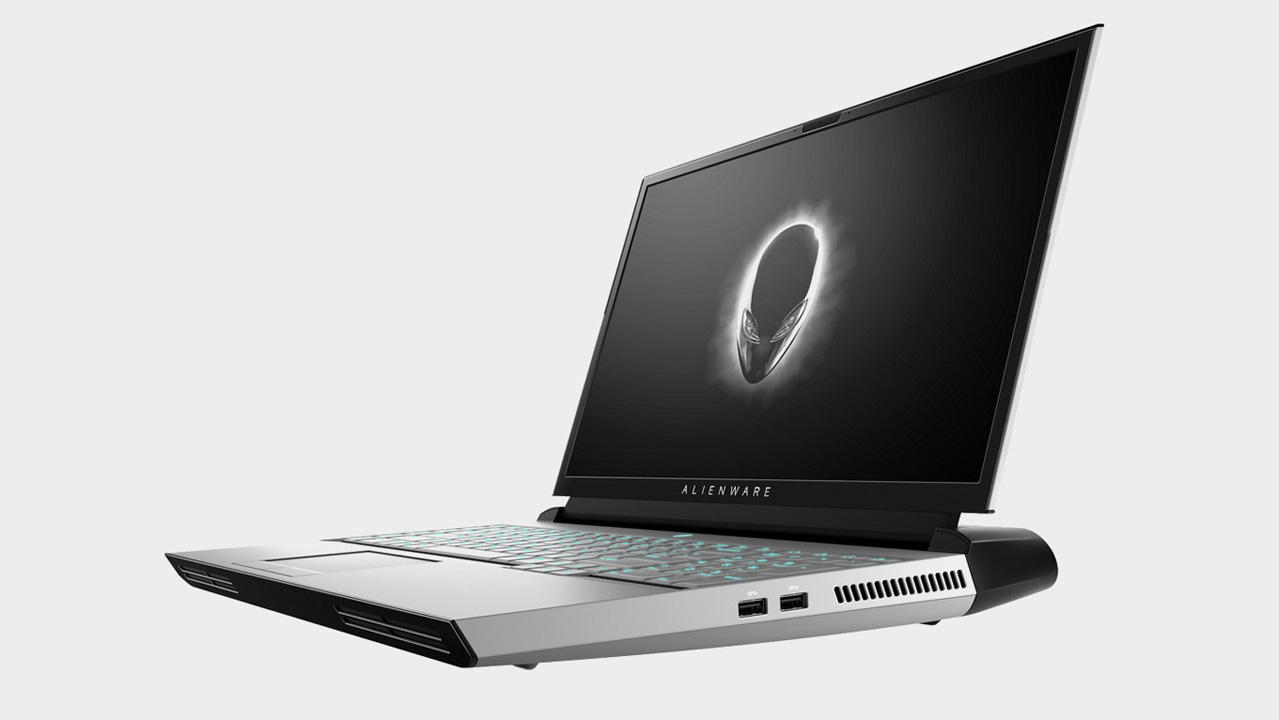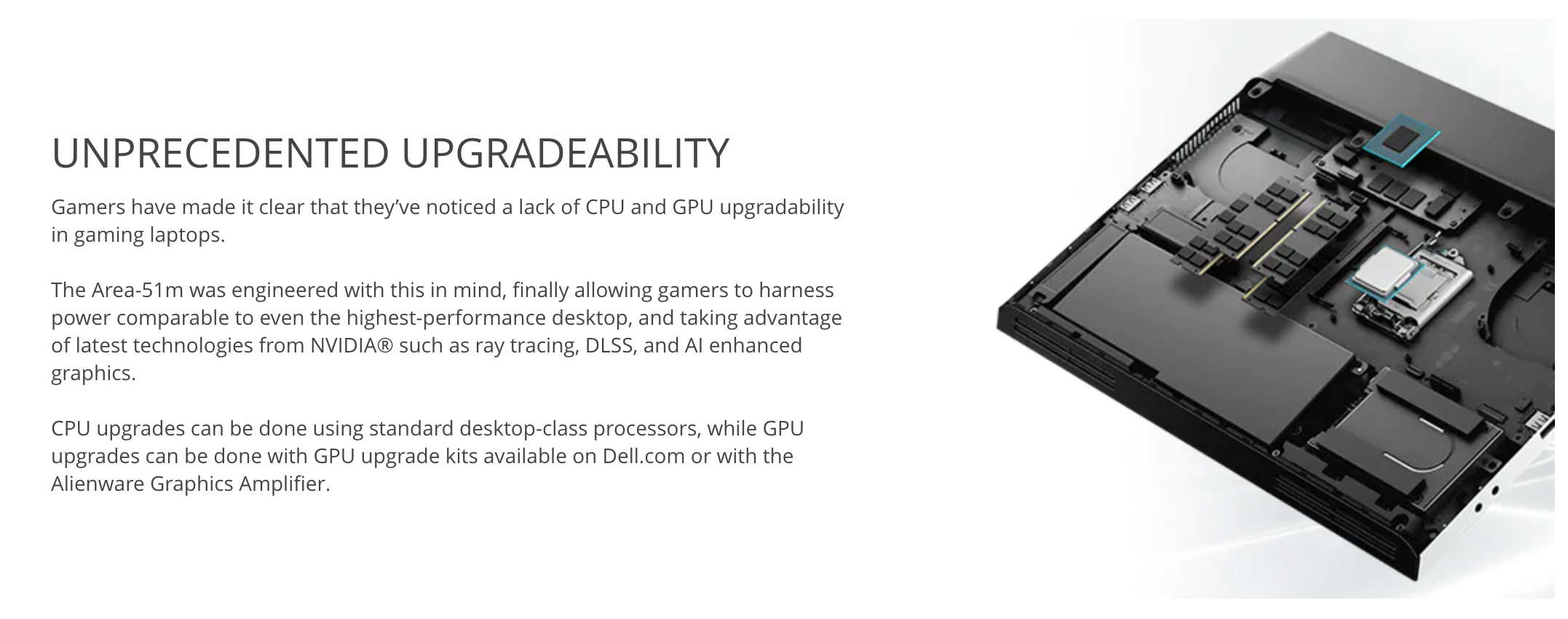Class action lawsuit filed against Dell for false advertising over Alienware laptop's upgradeability
Lawsuit claims Dell misled customers on the Alienware Area 51M R1's key selling point.

In a class action lawsuit filed in the US district court of Northern California, the owner of an Alienware Area 51M R1 gaming laptop alleges that Dell knowingly misled him with advertisements over the laptop's "unprecedented upgradeability."
The 20-page complaint claims that Alienware was "falsely misrepresenting characteristics and qualities of the Area 51M that it knew did not exist," alleging breach of contract and warranty, false advertising and unlawful business practices under the California civil code.
The core of the complaint, filed by plaintiff Robert Felter, is that Alienware's advertising gave the impression that owners of a 2019 Area 51M R1 laptop could upgrade to future Intel CPUs and Nvidia GPUs, like the then-upcoming Intel 10th gen and Nvidia RTX Super GPUs.
Neither was possible with the Area 51M R1. Because the 10th gen Intel CPUs moved to a new socket, they weren't compatible with the Alienware Area 51M R1's Z390 motherboard. Dell did later sell GPU upgrade kits for the R1, but they maxed out with the RTX 2080, rather than the faster 'Super' models—meaning anyone who had already purchased the laptop with an RTX 2080 had no way to upgrade it.
The next iteration of the laptop, the Area 51M R2, did support upgrade kits for the Super GPUs, as well as Intel's 10th gen CPUs.
Felter's lawsuit alleges that Dell knew when it made its promise of "unprecedented upgradeability" that the 51M's upgradeability would be limited by factors like that Z390 motherboard, and that it was a marketing ploy to help sell the 51M before newer hardware showed up. "Dell knew it had to address consumers’ hesitation to purchase the Area 51M R1 shortly before its Core Components became outdated," reads the complaint.
A lawyer for the plaintiff told Tom's Hardware that "Dell’s advertisement to the public didn’t place any restrictions on the upgradeability of the laptop" and that Dell "never disclosed that those with the highest spec CPU and/or GPU that their device would not be upgradeable."
Keep up to date with the most important stories and the best deals, as picked by the PC Gamer team.
We reached out to Dell; the company said that it does not comment on legal matters. A copy of the complaint can be found here.

Jorge is a hardware writer from the enchanted lands of New Jersey. When he's not filling the office with the smell of Pop-Tarts, he's reviewing all sorts of gaming hardware, from laptops with the latest mobile GPUs to gaming chairs with built-in back massagers. He's been covering games and tech for over ten years and has written for Dualshockers, WCCFtech, Tom's Guide, and a bunch of other places on the world wide web.


